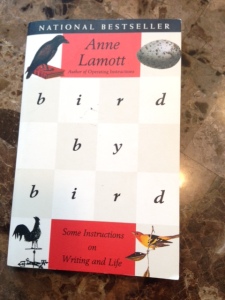Writers are a curious group, with many searching for tips to help us write faster, write better, to create stronger stories with more compelling characters. Sometimes the writing flows and it feels so effortless. When the writing gets difficult, it must mean we’re doing something wrong. We need to fix the struggle, to find a trick or technique to navigate the tough moments.
When I find myself in this position, I sometimes search for answers from my favorite novelists. The searching is also a form of procrastination. There must remain some skills I have not yet learned that would help me better manage these difficult patches in the creative process. Certainly some other successful writers and artists have insights that will guide me back toward the easier path, right?
Maybe mimicking successful writers’ habits would be the key, so I turned to Mason Curry’s Daily Rituals: How Artists Work to find the common thread that made so many of these artists successful. With 161 artists profiled, their common techniques would reveal themselves, right?
 What this careful study in creative habits revealed was that there are as many paths to success as there are barbeque options in Texas. Some, like novelist Haruki Murakami, wake up early and embrace strict routines. Yet, Jane Austen wrote amidst the bustle of visitors, housework and entertaining with no schedule at all. Some creatives drank, others abstained, some wrote a little bit each day while others wrote in a frenzied spring to the finish line.
What this careful study in creative habits revealed was that there are as many paths to success as there are barbeque options in Texas. Some, like novelist Haruki Murakami, wake up early and embrace strict routines. Yet, Jane Austen wrote amidst the bustle of visitors, housework and entertaining with no schedule at all. Some creatives drank, others abstained, some wrote a little bit each day while others wrote in a frenzied spring to the finish line.
“There is nothing to writing. All you do is sit down at a typewriter and bleed,” Hemingway said. His quote is a reminder that there isn’t a magic path to writing, a secret that will cure all that ails you (or your manuscript). There also isn’t one right way to approach the craft of storytelling. It’s simply a matter of sitting in front of the computer each day and fighting through the difficult moments, putting words to paper even if they aren’t quite the right words in quite the right order.

My well-worn copy, purchased at a bookstore in Maryland while traveling for work back in 1996. I still keep it close for inspiration and as a reminder to take my projects one step at a time.
I once had an impressive collection of writing reference books and, back then, I tried on advice like many try on clothes, searching for that perfect fit. I have since whittled the collection down to a handful of books that continue to provide guidance and help me get back on track. However, what helped more than anything was the realization that I had to find my own way. It was time to apply what I had learned, to shape it and make it my own. I had to quit trying to twist the routines and methods of others to fit my life, responsibilities and personality. Yes, I’ve learned quite a bit reading these books but there comes a time when practicing the craft trumps reading about it.
Sometimes the writing is hard. There is no easy answer when we hit a wall, stumble through the messy middle of a manuscript or realize a scene we love doesn’t serve the story. It’s a matter of digging in and staying with the work. Struggling is part of the process. And that realization actually makes the process easier. Now, instead of searching for the next strategy, I can get back to work instead.


You mean you got rid of your writing books?? I probably should leaf through mine and re-read the dog-eared pages from time to time. If I had more time! I did quit going to panels at conferences that were teaching technique when I realized I knew all those things, just needed to use them.
LikeLike
Good essay, Laura. I’ve always searched for a magic wand to make chocolate cravings go away, for instance. If I only had the right story, the right character, I could move mountains with as little wear and tear as possible. I know from experience that trudging along on a daily basis is the answer. I don’t like it, but it is the answer. Unless there’s some magic I haven’t stumbled across yet.
LikeLike
Good, balanced discussion, Laura–got me thinking. I do often get a boost from a new book on craft, but sometimes it confuses me, too. Wish there were easy answers!
LikeLike
Some authors and teachers prescribe methods and techniques as if they were the only cure for the writing blues. For a writer just starting out, that kind of advice can be stifling–it certainly was for me. I thought each one had THE answer. Each did, for only for that particular writer. I still read about writing, but I know I have to find my own way. My favorites are books like Bird by Bird, in which writers reflect on writing, describe how they write, tell how they get through bad patches, encourage rather than preach. Those I find inspiring.
LikeLike